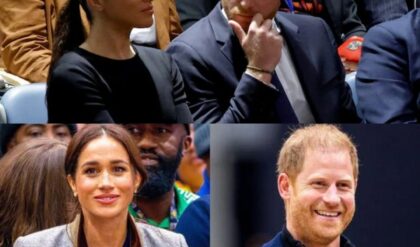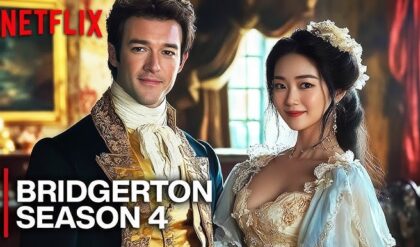As hard as it is to believe, Jodie Foster allegedly once said, “Acting, for me, is exhausting. I’m more energized by directing. It’s more intense to direct. I can pop in and express myself, then pop out again. It’s a huge passion for me.” So why hasn’t she directed as much as she might have?
Jodie once lamented to People.com, “It’s great that Wonder Woman made that kind of money. Let’s hope another woman will be allowed to fail on a big-budget movie and that other women will be given a chance after that. That’s the real test.”
At the Tribeca Festival a few years ago, in a conversation about why women aren’t directing as many mainstream franchises Jodie told Julie Taymor, “It would be nice to have a more complex conversation and to be able to look at it as more than just a quota. It’s not as cut-and-dry. I don’t think it’s a plot to keep women down collectively; it’s a bunch of people that weren’t thinking about it, including a lot of female executives who have risen to the top and have not made a dent in (securing opportunities for women filmmakers).”
 Jodie Foster in Little Man Tate
Jodie Foster in Little Man Tate
Little Man Tate (1991) was Jodie’s debut as director. She lavished the camera on both protagonists: a single, working-class mother (a role she played with quiet brilliance) and her prodigy child. But she also lavished it on others — students, teachers, parents — as they looked at the dysfunctional mother and child. Those touching moments came, incredibly, just months after she was immersed as one of two central characters in the horrifyingly morbid Silence of the Lambs (1991).
Four minutes into Little Man Tate, Jodie manages to tell us how deeply the mother loves her infant, how she first struggles to understand her toddler’s gifts and how others later negotiate that same struggle. She brought her intimate understanding of the subject (having grown up a prodigy herself) to the narrative. It shows in every shot. She’d grown up used to everything about a film set. Camera? Crew? She’d been in front of them even before she turned ten. She absorbed, even as a child, the importance of lighting, angle, and frame.
Still, producers were reluctant to have her direct. They agreed only after she persisted, even agreeing to star with no fee — she had two Oscars tucked in her belt by then, how could they refuse?
By no means a “great” movie, she told through Tate a “more than ordinary” story in an extraordinary way: sensitively and sympathetically. It was a sort of vindication of Jodie’s own thinking: “I’m interested in directing movies about situations that I’ve lived, so they’re almost a personal essay about what I’ve come to believe in.”
 Home for the Holidays (1995)
Home for the Holidays (1995)
A few years later, Jodie co-produced and directed but didn’t star in the family comedy-drama Home for the Holidays (1995). She steered an ensemble cast (Robert Downey Jr, Anne Bancroft, Geraldine Chaplin, Holly Hunter) securing powerful performances in the most claustrophobic settings — kitchen, dining table, foyer, bathroom, driveway, porch, front seat of a car. These were highly accomplished actors and Jodie made them bounce off each other with just the right tension, in scene after scene.
An inexplicable 16 years later, Jodie directed and starred in another comedy-drama: The Beaver (2011). A shame that her craft as director was so overshadowed by controversies over the star, Mel Gibson. Critics who saw the protagonist’s flaws mirrored in Gibson’s real life at the time were simply too distracted to give Jodie her due.
Then, she directed Money Monster (2016). Jodie leveraged some inspired casting (Julia Roberts, George Clooney) and heroically battled a good — occasionally brilliant — script to make the movie more than the sum of its scenes.
 Money Monster (2016)
Money Monster (2016)
A man off the street out to avenge his loss off a “you-know-we’re-bogus” stock-tips show takes the host hostage! Frankly, a plot that on its own remains too thin and temperamental to warrant an entire movie. Naturally, repetitiveness creeps in and some of the character shifts are a tad too jarring and dramatic for their own good.
Jodie ensures that her own movie crew almost intuitively follow everything. She tells the story the way it should be told: up-close and personal, but layered enough to demand a thinking audience who can keep pace with what the characters are going through.
Both main characters (played brilliantly by Roberts and Clooney) dance every few minutes between vulnerability and tentative control. But Jodie ensures a pace and rhythm that makes it all more believable. She leaps seamlessly between studio action inside and drama outside but stays committed to the characters – victim (gullible trader), enablers (show crew) and villain (rogue trading company).
For good measure, her female characters come off looking eventually more powerful (Roberts) and principled (Caitriona Balfe) than the men. No movie Jodie has steered before has displayed so well her finesse in shaping a movie’s artistic elements, in bringing the screenplay to life. It’s a pity that she was let down by sagging plot and flagging script.
Hollywood studios, producers, and screenwriters are losing out if they don’t throw more projects Jodie’s way. She might do herself a favor and hunt for more rock-solid scripts and plots — she deserves it. She’s a movie veteran with little left to prove before the camera. Behind it? It looks like her best is yet to come.





